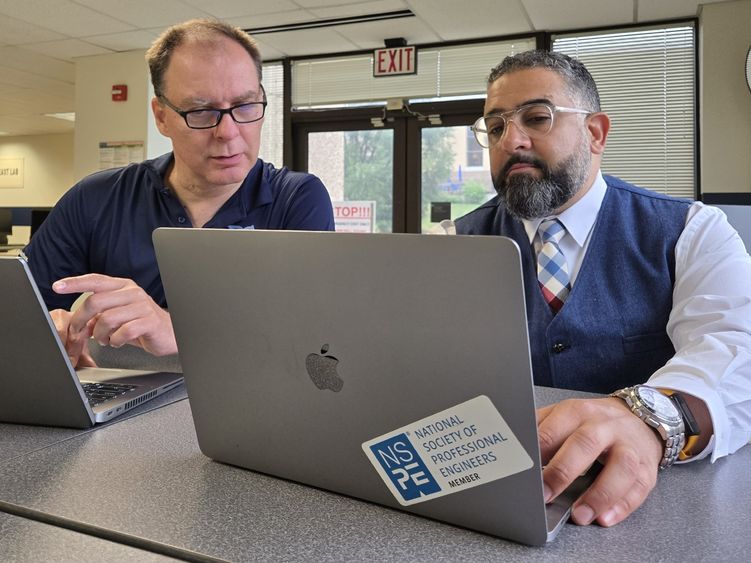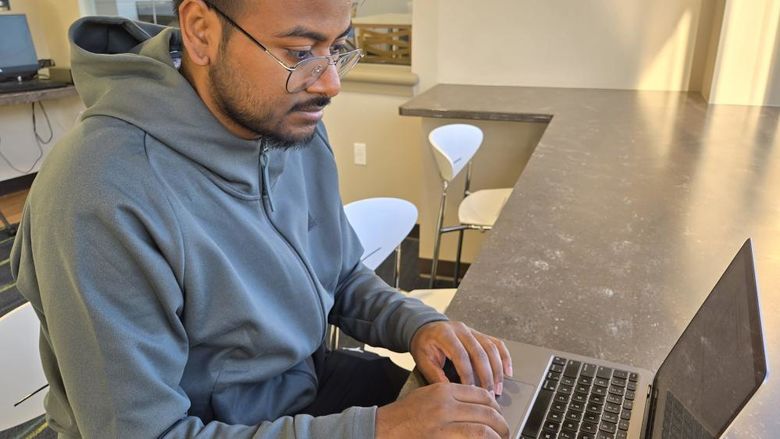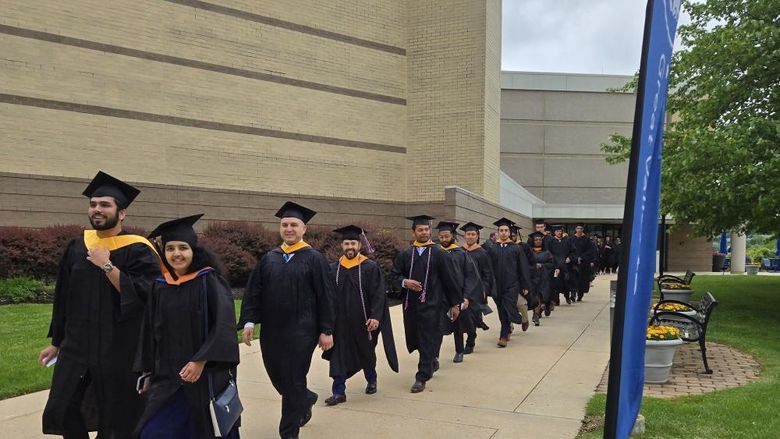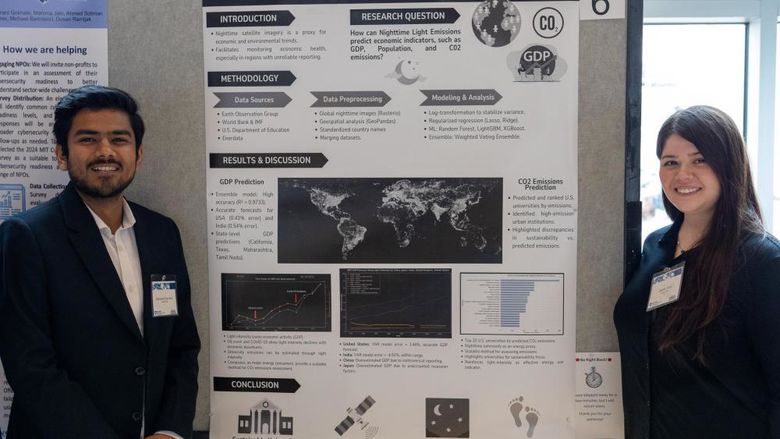
Assistant Professor Dusan Ramljak, left, and engineering management graduate student Ahmed Soliman, right, examined information for a public impact research project to apply data-driven approaches to the opioid epidemic.
MALVERN, Pa. — Two Penn State Great Valley graduate students are collaborating with faculty to conduct a public impact research project aimed at predicting and preventing opioid deaths. This project aims to benefit the community while also providing valuable research experience and learning opportunities for student researchers.
Dusan Ramljak, assistant professor of software engineering at Penn State Great Valley, and Nonna Sorokina, assistant professor of business/finance at Penn State Scranton, received one of the University’s new Presidential Public Impact Research Awards in June and selected two students as research assistants.
Engineering management graduate student Ahmed Soliman and artificial intelligence graduate student Mark Fahim will support the work through project management, data analytics and engineering research.
“The opioid epidemic is one of the most significant public health challenges of our time, and I am excited to apply data-driven approaches, leveraging artificial intelligence and machine learning, to recommend appropriate interventions,” Soliman said.
The researchers said that they expect that social, economic and demographic data will help them to better understand and predict opioid abuse outcomes and develop recommendations to act preventively. Using their research framework and data from the Centers for Disease Control and Prevention (CDC) and other sources, the researchers will develop a pilot model to identify risk factors and to pinpoint geographic regions with high odds of opioid deaths.
The researchers will use advanced computational techniques to make precise predictions and to recommend targeted interventions among vulnerable populations and areas. The results of this project will help inform community stakeholders and advance academic research on the opioid crisis, the researchers said.
“This project provides deeper insights into how socioeconomic and health factors contribute to the crisis, and I am hopeful our work will lead to meaningful public impact,” Soliman said.





